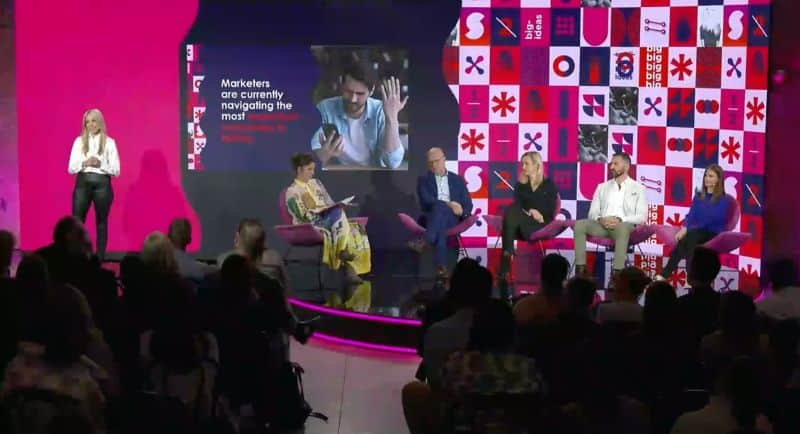Nine has swung open the door on its sixth Big Ideas Store, launching a week of speakers, workshops, research, and an immersive pop-up taking over the Beta events space in Sydney.
Mediaweek will be across all the week’s sessions, bringing readers a rundown of every idea – big or small.
Find out more about The Big Ideas Store here.
Day one: Nine’s Big Ideas Store 2023: Day One recap
Washed Out: Why the Days of Greenwashing are Numbered
By Alisha Buaya
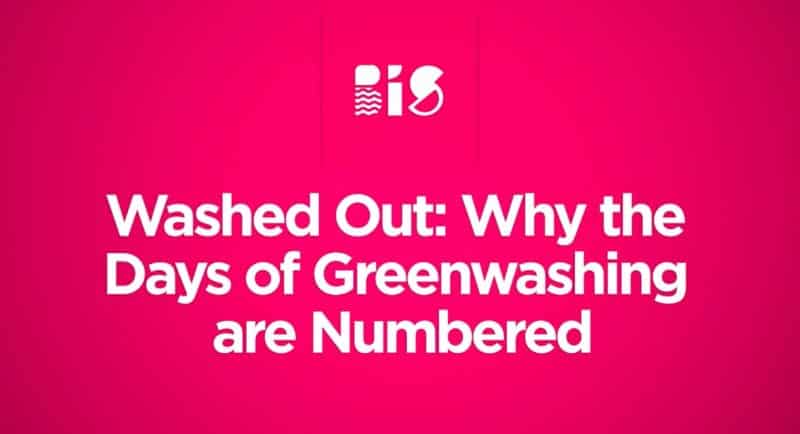
The session was hosted and introduced by Kate Waugh, Powered by Nine’s head of creative solutions.
Ahead of the panel discussion, Waugh highlighted several key points about how consumers think critically about what brands they are targeted by and how they will engage with them regarding sustainability.
Waugh said: “75% of millennials say they consider sustainability when they make a purchase, and not only that, they are willing to pay more for a product with credible sustainability practises or packaging.
“The onus is no longer solely on the government to plan for a better future. It’s also in the hands of the brand.”
“The push for a more sustainable future saw many brands jumping on a bandwagon that they couldn’t justify or prove. Most commonly, greenwashing takes the form of vague or unverifiable claims such as eco-friendly, all-natural, or sustainable or advertising a small aspect of a product or service as being environmentally friendly while ignoring the larger negative impact that may have.”
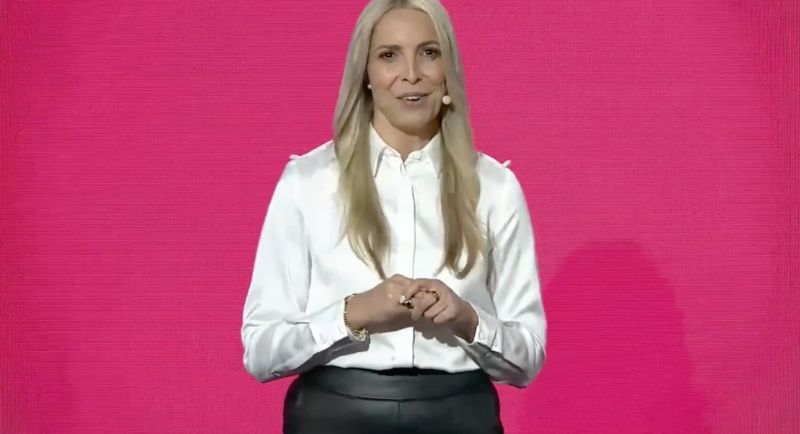
Kate Waugh
Waugh noted that some brands were pressured to take a stance on sustainability incredibly fast, leading to mistakes that ultimately caused consumers to lose trust.
“What’s more of a risk greenwashing or staying quiet? Greenwashing is the risk. Perception is now part of brand value, and being found out not only changes that perception but will attract sanction that amplifies the change.
“Green hushing or staying quiet is also a risk as consumers increasingly consider sustainability when making purchases,” she added.
As consumers have increasingly high expectations of brands as good corporate citizens and agencies take up strong positions on sustainability, the discussion centred on answering how advertisers showcase that they are doing the right thing in the right way.
Lisa Day, director of content partnerships for Total Publishing and Audio at Nine, moderated the discussion between different stakeholders in the marketing environment to give their thoughts and opinion on how brands.
Day was joined by Patrick Gibbons from Orizontas, Aimee Buchanan, CEO of GroupM Australia and New Zealand CEO Josh Faulks, CEO of AANA, and Hayley Peacock-Gower, chief marketing officer at Aurora Expeditions.
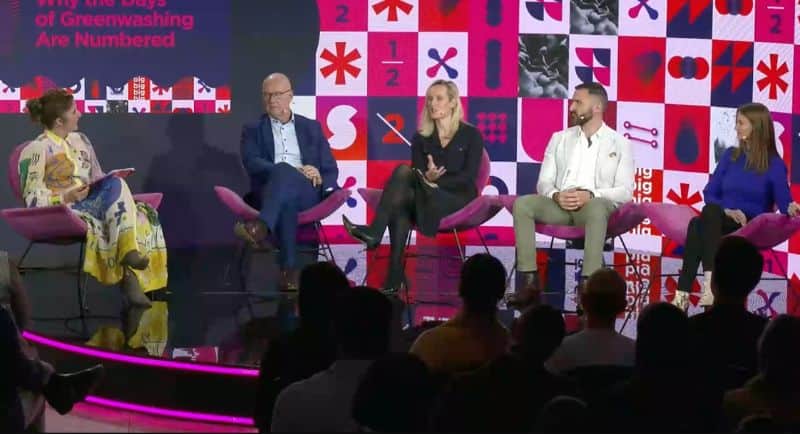
Lisa Day, Patrick Gibbons, Aimee Buchanan, Josh Faulks, and Hayley Peacock-Gower
When asked who will drive change most effectively, government, business, or will consumers vote with their feet, Faulks answered: “All three,” as Peacock-Gower added it would be “the collective.”
Faulks continued: “I’m not going to comment on the previous governments, but there’s a lot more timidity from the governments in the past; businesses had to step up, and consumers demanded that the businesses stepped up.
“I think we can. I will say that the government is trying to move a little bit more,” he added.
Buchanan chimed in and added: “Corporate Australia… there’s a massive precedence for that in this country. Corporate Australia will drive an agenda, the government will get there, and consumers will either push or pull.”
Cultural Conversations: The Value Equation
By James Manning
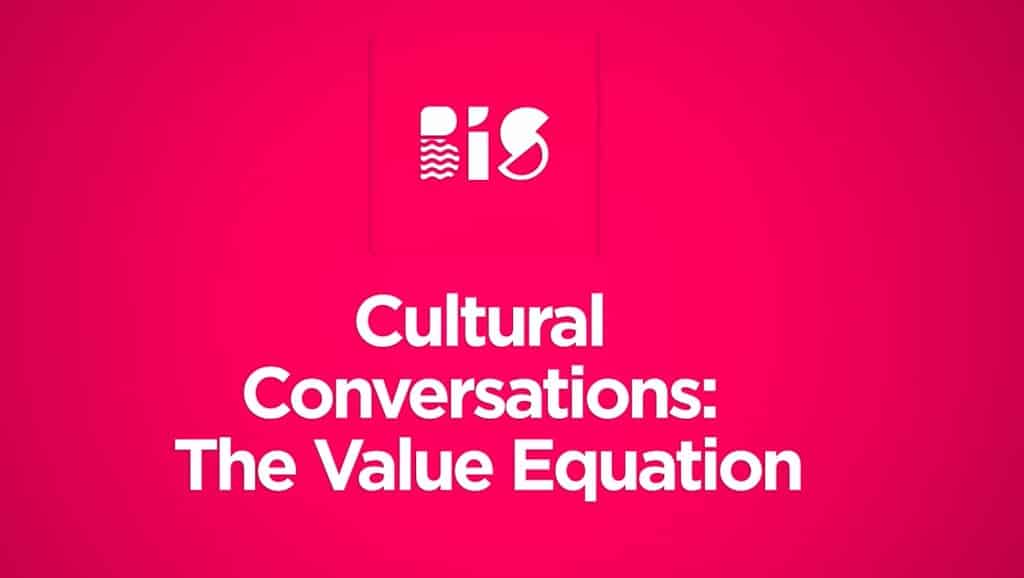
The session was hosted and introduced by Nine’s director of strategy & client solutions Toby Boon.
In a presentation before starting a panel discussion, Boon said: “Consumers when they make purchasing decisions, are placing importance on meaning and connection beyond price. In other words, value.
“It became clear to us we really needed to better understand that value means to Australians today and the impact that is having on how they are spending money with brands.
“Over the past six months we have worked with Fiftyfive 5 on a new study exploring the drivers of where consumers see value and how brands can respond to those changing mindsets.”
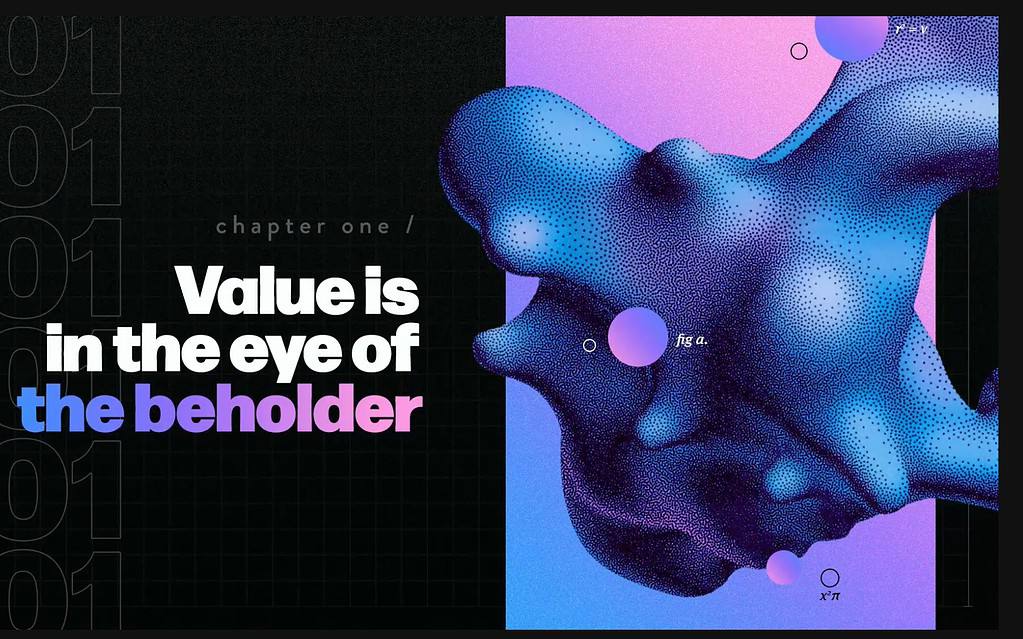
Boon recapped some of the research findings for Big Ideas Store visitors.
“It’s not an easy job to define value and it is hard to pin down. It is an illusive concept and value is very much in the eye of the beholder.
“In the context of consumer culture, value is the perception of what a product and service is worth to a consumer versus the possible alternatives. In its simplest term, value equals benefit minus cost.
“Cost might be financial, it can be time, energy or effort. The benefits could be quality, brand value, experience, and the impact that the product has. Essential to understanding value is understanding that it is an exchange.”
Boon said it is important to understand what the customer really needs and what the customer really wants and desires and how a product or service can fulfil that.
The Fifyfive 5 research covered a survey of 1,000 Australians plus industry experts.
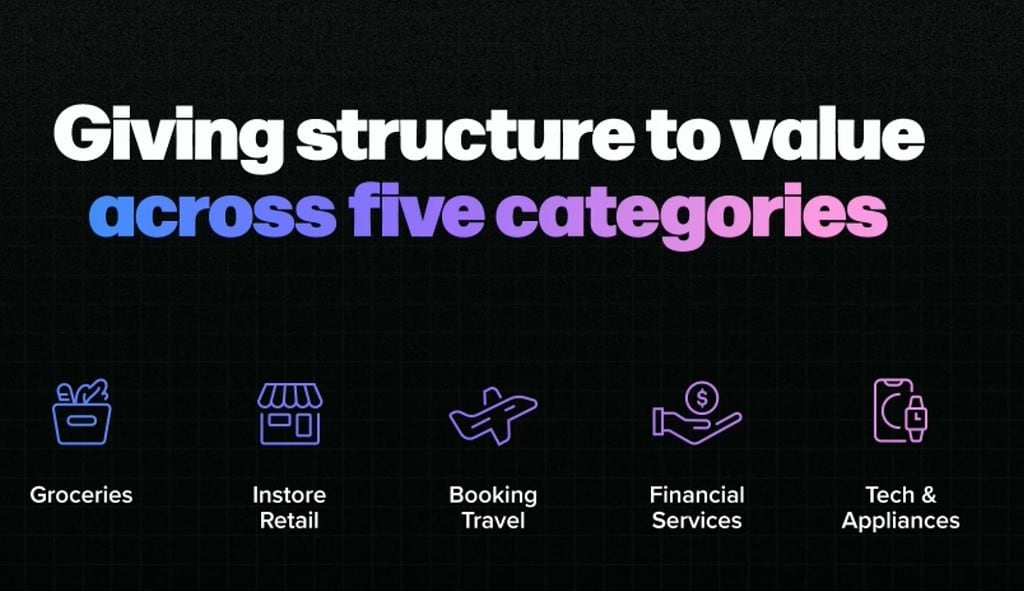
That research listed five key categories represented of the broad market – Grocery, In-store Retail, Travel, Financial Services and Tech & Appliances.
The Big Ideas Store panel on the Value Equation was chaired by Nine’s director of content partnerships and client experience Sarah Stewart. Joining her were Hannah Krijnen from Fiftyfive 5, Colin Glynn from McDonald’s and Jessica Yun from The Sydney Morning Herald and The Age.
Each panellist gave their impressions of value and discussed the research into key categories.
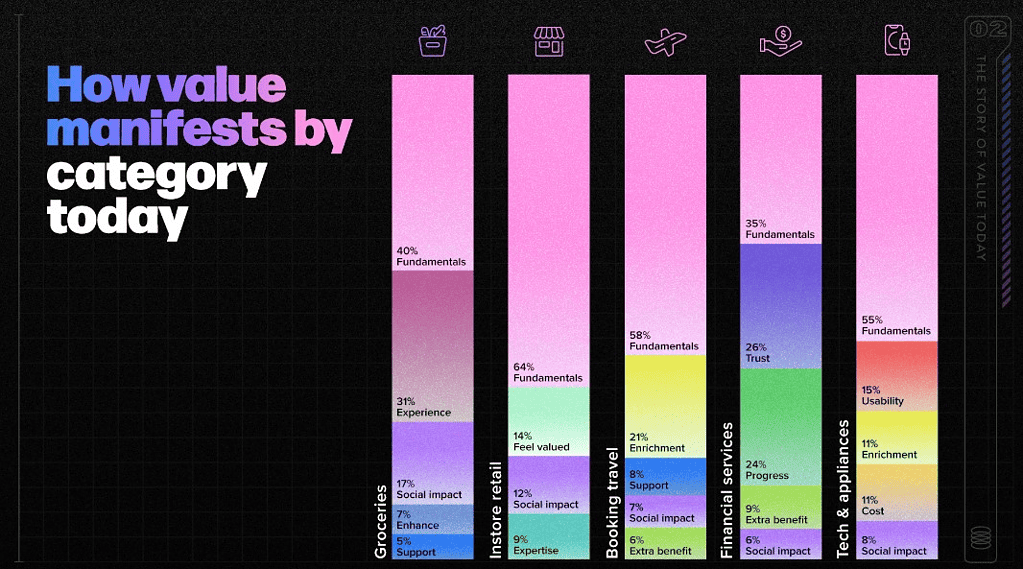
Krijnen said value appears differently depending on the category and can change from product to product within that category. The customer need can also change, “And you have to change with it,” said Krijnen.
Glynn talked about how important value was to the McDonald’s customer. “The linkage to giving value and making the customer feel valued is critical.” He noted the food business had a strong back catalogue of “classic hits” that have worked for customers when it comes to offering value.
Yun spoke about stories she has written about the impact consumers have on the success and failures of businesses. “It is really sink or swim now for brands. The ones that stand for something will do well.” Yun spoke about the recent collapse of food delivery business Providoor to illustrate how tough it can be for brands.
Read More: Big Ideas Store: What consumers value from brands
–
Top image: Kate Waugh, Lisa Day, Patrick Gibbons, Aimee Buchanan, Josh Faulks, and Hayley Peacock-Gower
